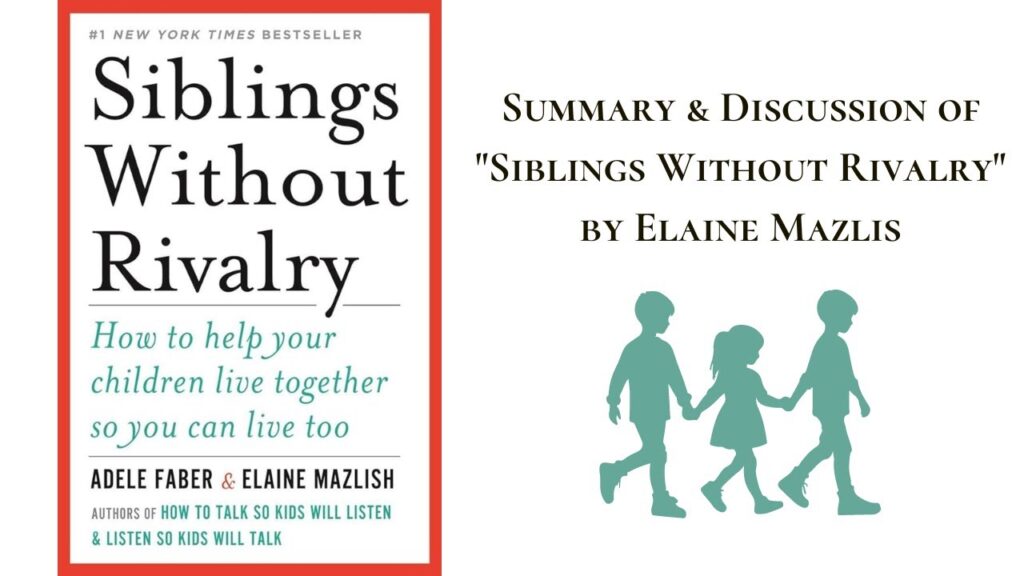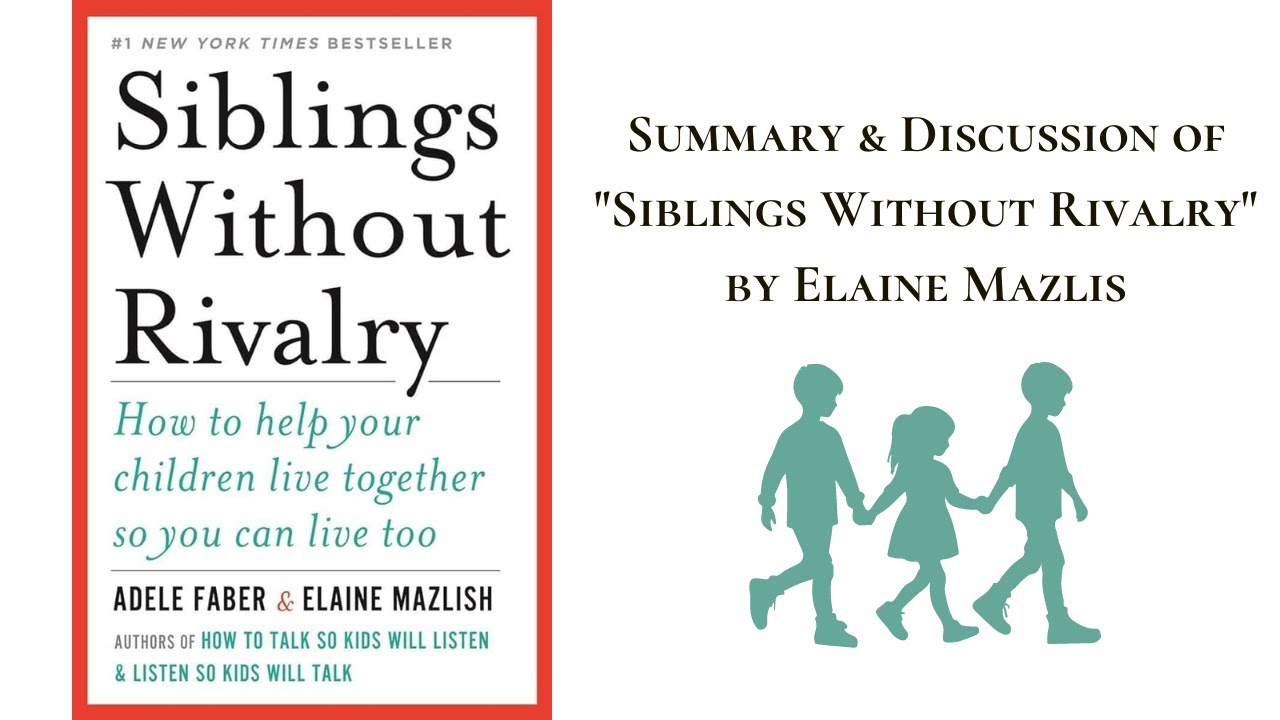
Sibling Without Rivalry: Fostering Harmony in Your Family
Sibling rivalry is a common challenge in many families. The constant bickering, competition, and feelings of resentment can create a stressful and unhappy home environment. However, it’s possible to navigate these challenges and cultivate a positive relationship between siblings. This article explores strategies to minimize sibling without rivalry and nurture a supportive and loving bond between your children. We’ll delve into understanding the root causes of this common issue and provide practical tips for parents to create a more harmonious family dynamic.
Understanding the Roots of Sibling Rivalry
Before addressing the symptoms of sibling without rivalry, it’s crucial to understand its underlying causes. Several factors can contribute to this dynamic:
- Competition for Parental Attention: Children often compete for their parents’ love, approval, and attention. This competition can be heightened when they perceive that one sibling receives more attention than the other.
- Differences in Personality and Temperament: Each child is unique, with their own personality, temperament, and needs. These differences can sometimes lead to conflict and misunderstandings.
- Perceived Unfairness: Children are highly sensitive to fairness. If they perceive that one sibling is treated more favorably, it can trigger feelings of resentment and jealousy.
- Developmental Stages: Sibling rivalry can be more pronounced during certain developmental stages, such as when a new baby arrives or when children are striving for independence.
- Family Stress: Stressful events within the family, such as financial difficulties or parental conflict, can exacerbate sibling without rivalry.
Strategies for Minimizing Sibling Rivalry
While eliminating sibling without rivalry entirely may not be possible, there are several strategies parents can implement to minimize its impact and foster a more positive sibling relationship:
Avoid Comparisons
One of the most damaging things you can do is compare your children to each other. Comparing their achievements, abilities, or personalities can fuel feelings of inadequacy and resentment. Instead, focus on celebrating each child’s unique strengths and accomplishments.
Treat Each Child as an Individual
Recognize that each of your children has different needs, interests, and personalities. Tailor your parenting approach to meet their individual needs. Avoid treating them all the same, as this can lead to feelings of unfairness. Spend one-on-one time with each child to nurture their individual interests and build a strong bond.
Establish Clear Rules and Expectations
Establish clear rules and expectations for behavior within the family. Make sure that all children understand the consequences of breaking these rules. Be consistent in enforcing these rules, and avoid playing favorites. When conflicts arise, focus on finding fair and equitable solutions.
Teach Conflict Resolution Skills
Equip your children with the skills they need to resolve conflicts peacefully and constructively. Teach them how to communicate their feelings effectively, listen to each other’s perspectives, and compromise. Encourage them to find solutions that work for everyone involved. Role-play different conflict scenarios to help them practice these skills.
Promote Cooperation and Teamwork
Encourage your children to work together on projects and activities. This can help them develop a sense of teamwork and cooperation. Assign them shared responsibilities around the house. Celebrate their successes as a team, rather than focusing on individual achievements.
Create Opportunities for Positive Interaction
Create opportunities for your children to interact in positive and enjoyable ways. Plan family outings, games, and activities that everyone can participate in. Encourage them to spend time together and build positive memories. A strong family bond can significantly reduce sibling without rivalry.
Address Underlying Feelings
Pay attention to your children’s underlying feelings and address them directly. If they are feeling jealous, resentful, or insecure, talk to them about their feelings and help them understand why they are feeling that way. Validate their emotions and reassure them of your love and support. Ignoring these feelings can exacerbate sibling without rivalry.
Avoid Taking Sides
When conflicts arise, avoid taking sides. Instead, listen to both sides of the story and try to understand each child’s perspective. Help them find a solution that is fair to both of them. Taking sides can create further resentment and fuel sibling without rivalry.
Model Positive Behavior
Children learn by observing their parents. Model positive behavior in your own interactions with your spouse and other family members. Show them how to resolve conflicts peacefully and respectfully. Demonstrate empathy, compassion, and understanding. Your children will be more likely to adopt these behaviors if they see you modeling them.
Seek Professional Help When Needed
If sibling without rivalry is severe or persistent, consider seeking professional help from a therapist or counselor. A therapist can help you identify the underlying causes of the rivalry and develop strategies for addressing them. They can also provide your children with individual or family therapy to help them improve their communication and conflict resolution skills.
The Long-Term Benefits of Sibling Harmony
Fostering a positive sibling relationship has numerous long-term benefits. Siblings who have a strong bond are more likely to support each other throughout their lives. They can provide each other with emotional support, companionship, and practical assistance. They are also more likely to have positive relationships with others. Reducing sibling without rivalry is an investment in your children’s future well-being.
Moreover, a harmonious family environment contributes to the overall well-being of all family members. It reduces stress, improves communication, and creates a more loving and supportive home. By implementing the strategies outlined in this article, you can create a family environment where sibling without rivalry is minimized and your children can thrive.
Preventing Sibling Rivalry Before It Starts
Proactive measures can be taken even before a second child arrives to help prevent future sibling without rivalry. Preparing the older child for the arrival of a new sibling is essential. Involve them in the preparations, talk about the new baby in a positive way, and reassure them of your continued love and attention. [See also: Preparing Your Child for a New Sibling]
It’s also important to manage expectations. Explain to the older child that the new baby will require a lot of attention, but that you will still make time for them. Encourage them to help with the baby in age-appropriate ways. This can help them feel involved and connected to the new sibling. Addressing these issues early can lessen sibling without rivalry.
Conclusion
Sibling without rivalry is a common challenge, but it is not insurmountable. By understanding the underlying causes of this dynamic and implementing the strategies outlined in this article, parents can create a more harmonious family environment and foster a positive sibling relationship. Remember to be patient, consistent, and supportive. With time and effort, you can help your children develop a strong and loving bond that will last a lifetime. A family that focuses on minimizing sibling without rivalry will thrive.

